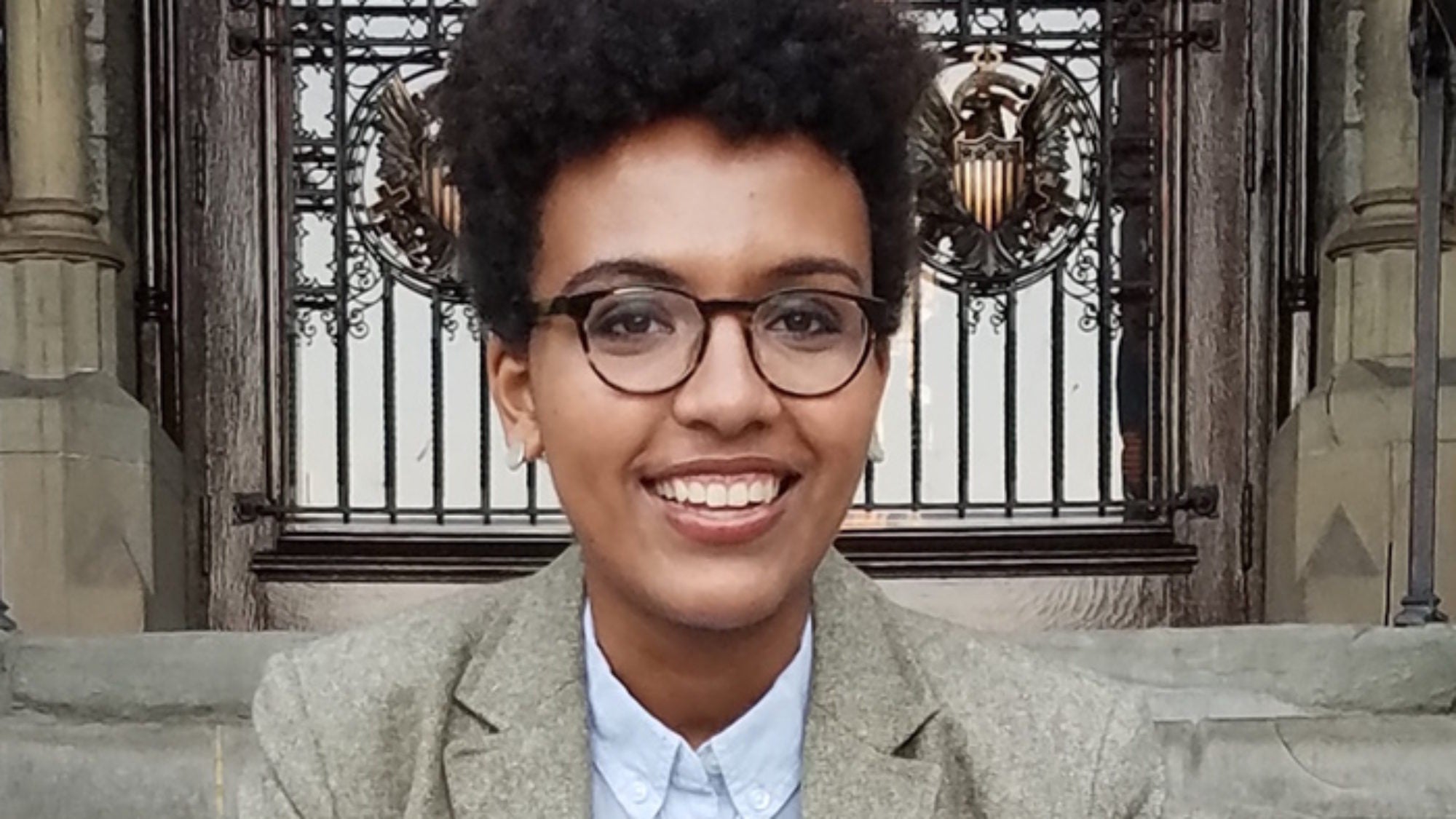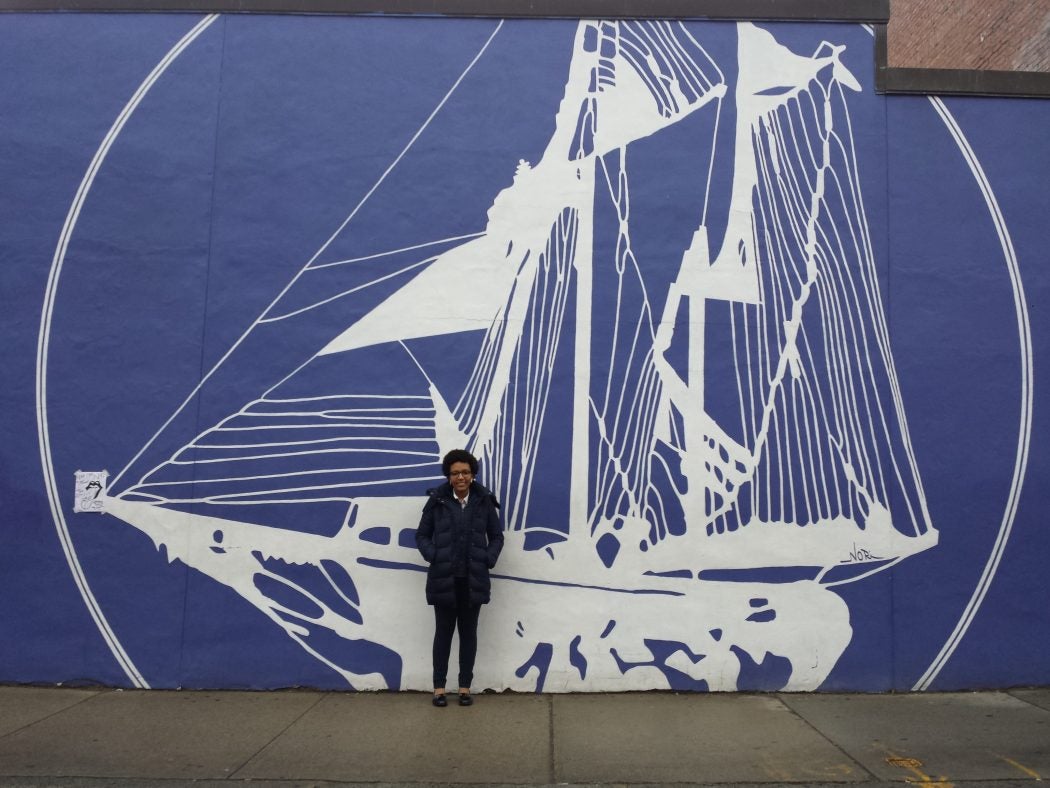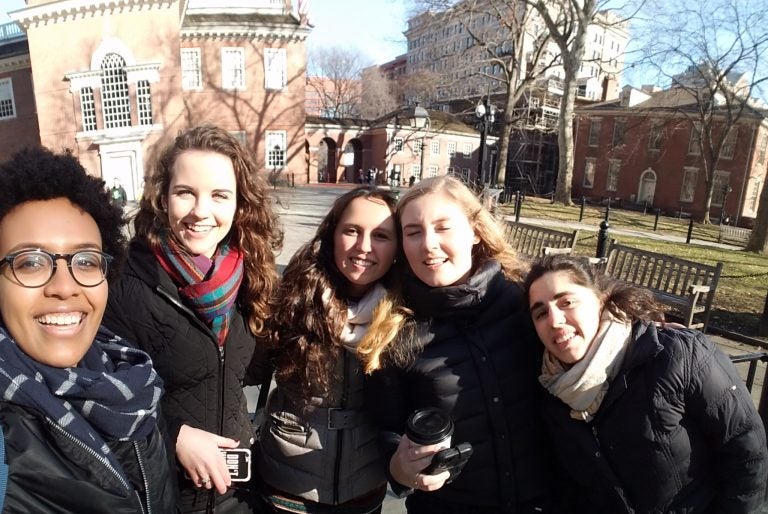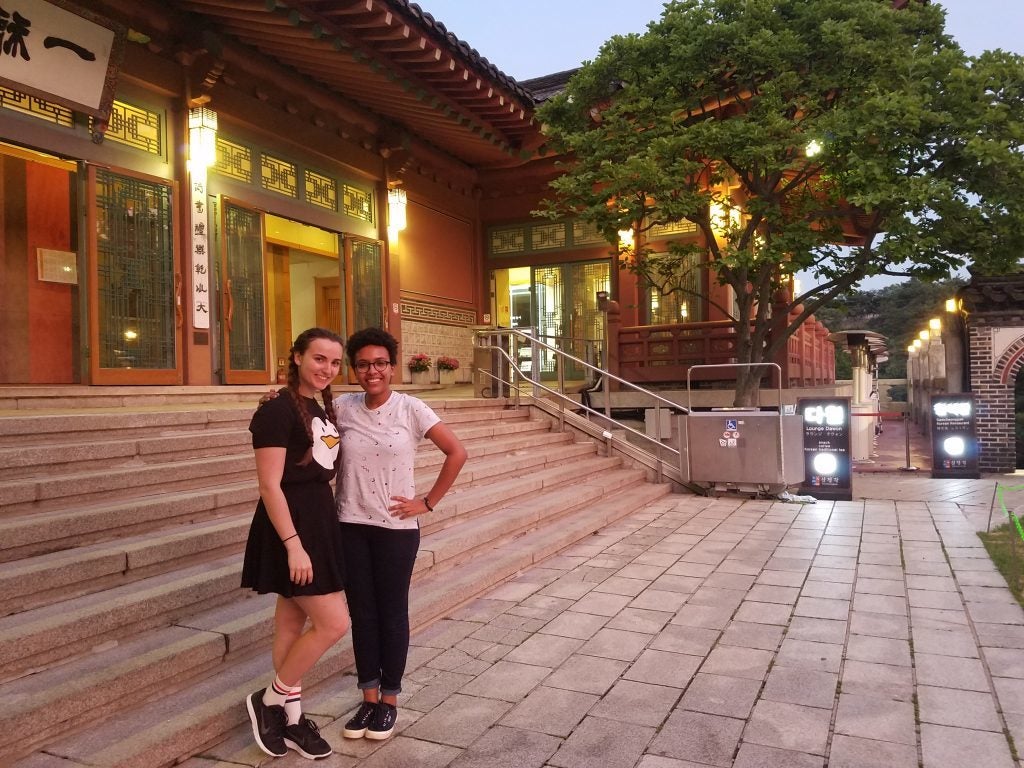
Title: Senior Edom Tesfa (SFS’18) Unites Passion With Practice On The Hilltop
Edom Tesfa
SFS, Class of 2018, Culture and Politics
Alexandria, VA
Languages: Chinese, Amharic, Spanish
Minor: Chinese
Proseminar: History of Money and Finance in Europe with Professor Holger Wolf
Study Abroad: National Taiwan Normal University in Taipei, Taiwan (Summer 2016)
On-Campus Activities:
Research assistant to Professor Doug Reed, Professor, Department of Government; Director, M.A. in Educational Transformation
Student assistant in the African Studies Program
Non-GU Activities:
Office of English Language Acquisition, U.S. Department of Education (Intern)
Threading her experiences as a second-generation immigrant together with budding passions in research and academia, Edom Tesfa (SFS’18) is taking steps toward a future she could not have envisioned before her time at the School of Foreign Service.
Edom is a Culture and Politics (CULP) major studying the sociocultural contexts of immigrant, refugee, and English learner (EL) education in the United States. She has spent her time on the Hilltop taking full advantage of all the research opportunities the school has to offer, driven by her own personal experience and interests. And her hard work has paid off: in the fall, she will begin working towards her Ph.D. in education at Harvard University, where she was named a Presidential Scholar.

“As a second-generation immigrant from a working-class family, I know all too well the obstacles that immigrant students and their families face in the U.S. education system,” Edom says. “In part because of the obstacles I faced—racism, xenophobia, classism, mismatches in social capital, and so forth—I initially did not think that academic research would be something that I could pursue. Ironically, my experiences as a second-generation immigrant ended up driving my research interests.”
Majoring in CULP proved to be the ideal way for Edom to academically engage with these issues.
“The CULP major provided me with the freedom to explore a more individualized major while being intellectually challenging and just structured enough for me,” Edom says.
Edom’s research experience began with a unique connection between Georgetown and Edom’s high school, the International Academy at T.C. Williams High School in Alexandria, Virginia. Edom discovered that government Professor Douglas Reed had published a book, Building the Federal Schoolhouse: Localism and the American State, focused on her high school and hometown.
“I read the book from cover to cover and recognized people alongside whom I had worked and events that occurred while I was growing up,” Edom says. “After finishing the book, I emailed [Reed], we met in person, and he hired me as his research assistant shortly after that.”
From there, a valuable relationship grew.
“Writing out all the ways in which he has supported me would take up too much space, but I will say this: thanks to him, I now want to earn a doctorate and become a professor, something I did not think was possible for me before I met him,” Edom says.
Presently, Edom still works as Reed’s research assistant, and is wrapping up a project and potentially co-authoring a book chapter. She has also branched out to her own research, harnessing her personal background and experience gained at SFS. A project that she began for the class Doing Anthropological Fieldwork ended up developing into her CULP honors thesis, and she gained many skills needed to conduct her own ethnographic research in that same class.

“My undergraduate thesis, which I began writing as a junior, examines racial and ethnic identity development among Ethiopian- and Eritrean-American undergraduates,” Edom says. “Through a combination of participant observation, semi-structured interviews, and content analysis of Twitter data – memes in particular – I aim to understand how diasporic youth situate themselves – and are situated by others – within a racial paradigm completely unlike that in the Horn of Africa.”
Edom acknowledges that the assistance and expertise of Georgetown’s faculty has been indispensable. She noted the guidance of several SFS professors: the mentorship of Professor Shiloh Krupar, field chair of CULP; the support of thesis advisor Professor Lahra Smith, of the African Studies Program, “both professionally and personally;” and the insight of Professor Katharine Donato, Director of the Institute for the Study of International Migration.
“Being able to learn from a leading scholar in the sociology of immigration has been incredible, especially as I hope to one day become a scholar in the same field,” Edom says.
Edom’s favorite Georgetown memory was when she received the call with her first graduate school acceptance, including full funding and several additional fellowships. She was working outside Reed’s office in the M.A. in Educational Transformation program at the time.

“After hanging up, I ran to and frantically knocked on Doug’s door to share the news,” she says. “I was yelling and jumping around, and we hugged, and I couldn’t contain my excitement.”
“In that moment, all of the work I had put in and all of the sacrifices I had made over the previous seven semesters was suddenly paid back tenfold. I was—and still am—full of gratitude for all of my mentors here at Georgetown.”
Edom’s own family and heritage has also played an important guiding role in her research and overall experience at Georgetown. As a student from an immigrant family and a member of the Georgetown Scholarship Program (GSP), her thoughts on accessibility and inclusion in education have deeply personal roots.
“I grew up working-class, and while my parents set aside some money for my education, I did not want to make them struggle to make ends meet. We have relatives that live in Ethiopia and Lesotho to whom my mother sends remittances, so I wanted my parents to be able to support them as well,” Edom says. “Georgetown’s commitment to meeting 100 percent of an undergraduate’s demonstrated need made me more optimistic about the future.”
Looking forward, Edom intends to keep working on these questions and related issues.
“My goal is to become a professor at a research university, where I can prepare future teachers and policymakers for properly addressing the needs of immigrant and refugee students,” Edom says.
After all her work at SFS, Edom stresses one essential piece of advice for students looking to take full advantage of SFS.
“Go to office hours! Georgetown is large enough that our faculty have a wide range of specializations, but small enough that our faculty are also accessible. Had I not gone to office hours from the beginning of my freshman year, I would not be where I am today.”